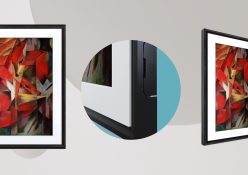Today’s tech savvy stokvel investors couldn’t be more different from those who have traditionally used this communal savings method to keep their families afloat. Stokvels have historically created lifelines for South Africans in rural villages and townships, empowering women in particular through a ‘stronger together’ savings culture.
Now urban men are also using stokvels. But their reasons for doing so are evolving – away from saving for funerals, buying bulk groceries or paying for school fees towards utilising stokvels as investment vehicles to build wealth.
Rooted in ubuntu
Historically, the Afrikaans word stokvel is derived from ‘stock fair’ – referring to the 19th-century cattle auctions where British settlers pooled money to buy cattle collectively.
Today, a stokvel is defined as ‘a community-based savings and credit association’ that is built on trust and offers support during hardship. Members contribute a fixed sum (either weekly or monthly) to the collective pot, which pays a lump sum to each member on a rotating basis or when needed — for example, for a funeral stokvel (aka burial society). In the spirit of ubuntu, everyone benefits by receiving more than they could save alone.
Stokvels mean big business. They are worth roughly R50 billion, according to the National Stokvel Association of South Africa (NASASA). Nearly 12-million South Africans regularly put their money into the country’s more than 800 000 registered stokvels. Standard Bank, Nedbank and FNB are among the financial institutions that have recognised the value and now offer specialised stokvel accounts.
Going digital
“Stokvels are becoming increasingly popular because people are recognising that when they team up with others — whether colleagues, business partners, friends or family members — they are more successful in their saving efforts,” says FNB. The bank’s stokvel accounts saw total inflows growing to R13.3 billion by December 2024 (up 66% from the year before).
Much of this growth is driven by the bank’s digital stokvel account, launched in 2020, to make transactions easier and safer. By sharing money electronically, stokvel members avoid the risk of handling physical cash and save on withdrawal fees while earning interest.
“Members spend less time on paperwork and more time planning how to grow their money” says Cebile Magongo, strategic business developer at FNB Retail Cash Investments. As a result of this convenience, we are seeing many stokvels starting to look at expanding beyond savings, and enhancing growth by investing in shares, unit trusts and even starting businesses together.”

More financial choice
A 2024 Ipsos survey found stokvels are being transformed by financial technology (digital stokvel accounts) and the use of social-media platforms (such as WhatsApp and Facebook). It also noted an increase in younger and higher-income members, who are injecting fresh perspectives, technological expertise and a desire for streamlined processes. However, cash remains the preferred mode of operation for most stokvels, says 1psos, revealing a persistent mistrust of the formal banking system.
“Members now have a greater array of choices regarding whom to partner with on their financial journeys and how to structure their administration systems to fit the group;” says 1psos Client Officer Busisiwe Mahlaba. “Banks therefore need to address this continued member resistance with a simplified seamless experience that fosters trust and buy-in.” She adds that the continued importance of cash is a chance to introduce new products like stokvel insurance.
Types of stokvels
Different types of stokvels serve specific objectives:
Burial Societies
Providing financial support during bereavement and to cover funeral expenses.
Grocery Stokvels
Collective (cheaper) bulk buying of groceries for members.
Savings Stokvels
Regular savings throughout the year, with disbursements based on equality or contribution.
Rotational Stokvels
Members take turns receiving the pooled funds.
Social Clubs
Combining social activities with financial contributions.
Investment Clubs
Pooling funds for investment opportunities.
@katlego_kala 6 types of stokvels. #navigatingmy30s #stokvel __________________________________ #kattalks #navigatingmy30s #dailydeviotionals #sama28 #fyp #foryoupage #fypシ゚ #southafrica #southafricatiktok #mzansitiktok #satiktok #mpumalanga #mpumalangatiktok #mpumalangatiktoker #johannesburg #johannesburgtiktok #johannesburgtiktoker #christianity #christiantiktok #christiantok #bible #motivation #verseoftheday #scriptureoftheday #christ #jesus #godlovesyou #jesuslovesyou #trendingvideo #viral_video #viralvideos #testimony #stokvel #savings #savingmoney #savingmoneytips #financialfreedom #financetiktok #finance #readyourbible #scripturereading #biblestudy #bibletiktok #biblestudytime ♬ Here I Am to Worship – Josué Novais Piano Worship
Innovation vs tradition
Meanwhile, specialised fintech is already innovating and streamlining the stokvel market. StokFella, for example, enables existing stokvels to digitise their operations by registering on its smartphone app. A dashboard tracks each member’s balance in real time, automates debit orders and provides secure, encrypted records. But StokFella also addresses the young generation of men who enjoy the stokvel traditions but want to accumulate funds for future wealth.
“They want stokvels to open up investment opportunities by using accumulated funds from like-minded people to invest in, say, a property where they can benefit from the growth of property values and also through rentals,” says StokFella CEO Tshepo Moloi.
The platform encourages group investing in property, transport and logistics, as well as franchises and even start-ups. “The one constant is that everyone contributes and everyone shares the benefits.”
The men who are investing in modern stokvels make an effort to combine fintech with staying connected to their African roots.
Words: Silke Colquhoun
Photography: Gallo/Getty images, Pexels
Also read: Tips to develop a stronger relationship with money







